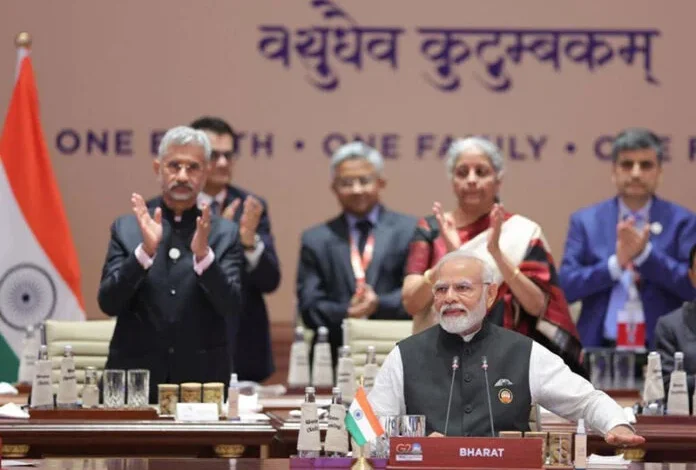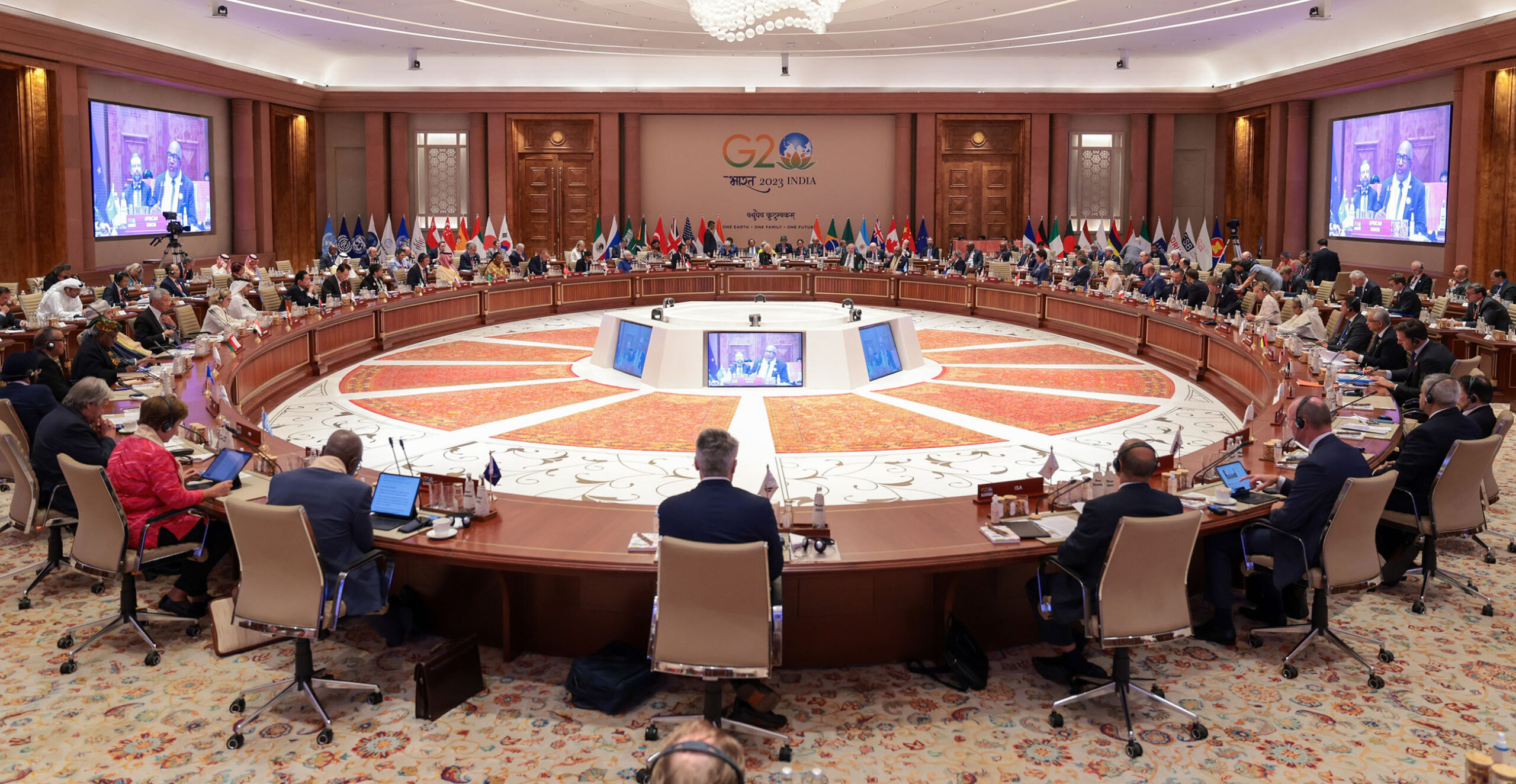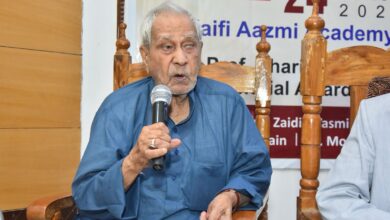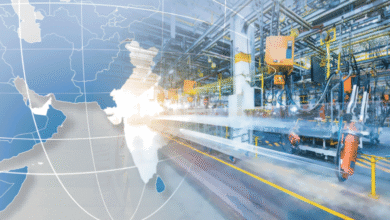
Indian Ambassador H.E. Dr. Adarsh Swaika
The Times Kuwait Report

In a recent interview following the conclusion of the G20 Summit in the Indian capital New Delhi, the Indian Ambassador H.E. Dr. Adarsh Swaika gave his impressions on the successful Summit held under the G20 Presidency of India. He began by noting that the Summit not only garnered interest world-wide for its customary importance in world affairs but also for the success of the Indian Presidency in making it an ‘outcome-rich’, ‘inclusive’, ‘bridging’ and ‘People’s G20’.“It was an ‘outcome-rich’ Presidency as the New Delhi Declaration was not only adopted with complete consensus, there were more than 112 such outcomes and documents in different areas, which is more than double the number for any past Presidency. It was an ‘inclusive Presidency’ as India channelized the priorities and concerns of the Global South, into the G20 process. It was a ‘Bridging Presidency’ as it was able to forge a consensus on some critical geo-political issues on which there was a fair amount of polarization among countries. It was a ‘People’s G20’ as it was not confined to the capital city of Delhi but the meetings were organized across the length and breadth of India. Overall, I would say that India’s presidency was inclusive, decisive, ambitious and action-oriented.”
Elaborating on the theme of the Summit — ‘One Earth, One Family, One Future’ — the ambassador said. “The theme is based on India’s ancient philosophy of ‘Vasudhaiva Kutumbakam’ (the world is a family). In essence, it means that we are part of one earth, one family and we share one future. The entire proceedings of the New Delhi Summit were organized accordingly, with three sessions devoted to each aspect of this theme. Many of the outcomes directly or indirectly take forward the global discourse on plants, people, peace and prosperity.”
Expanding on the immense effort and logistical arrangements that resulted in a successful Summit, the ambassador noted, “The G20 Summit was the culmination of months of intensive efforts put together by ‘Team India’ under the leadership of Prime Minister Narendra Modi with a whole of Government approach. As part of our commitment to People’s Participation, we took G20 to each and every corner of India, in a way to bring ‘ the G20 to India as much as India to G20’ in the words of our External Affairs Minister. Around 220 meetings were held in 60 different cities of India. All the G20 meetings had the unique touch of India art, culture and cuisine.
“With India’s strong digital public infrastructure, the Summit was also characterized by the use of digital payments and in general, technology, in terms of real time translation, access control and communication everywhere. In terms of logistical arrangements for the Summit, the new Conference Hall built for the Summit called ‘BharatMandapam’ is a center of global scale replete with Indian cultural ethos. The organization of the Summit was a true example of cooperative federalism on display.”
Turning to what some global media termed the ‘tour de force of India’s presidency of the G20 Summit’, the consensus Leaders Declaration, which many people had doubted could be achieved, Ambassador Swaika explained, “Until the beginning of the Summit, there was skepticism in some quarters about whether there would be a consensus Leaders Declaration. The doubts had some credence, given the current geopolitical situation and the varying degrees of polarization among countries on some geo-political issues. Despite this, India managed to obtain a consensus document — not at the last minute but comfortably.
This speaks enormously about the prowess of Indian diplomacy to get agreement on an elaborate 83 paragraph 34 page document. “Another major achievement of the New Delhi Summit was the inclusion of the African Union (AU) as the 21st member of an expanded G20. India has always been championing the cause of the Global South.
The inclusion of the AU as a permanent member of the G20 at the New Delhi Summit is a matter of pride and satisfaction. The continent of Africa will now have a permanent voice at the G20 that will make the G20 truly inclusive and more relevant. And the Indian Presidency would of course be remembered for the long overdue inclusion of the AU in the G20.”
Elaborating on some of the other important outcomes of India’s G20 Presidency, the ambassador said, “The comprehensive and solutions-rich Leaders Declaration addresses a wide range of challenges confronting humankind today. It focuses on promoting strong, sustainable, balanced, and inclusive growth. It seeks to accelerate progress on the UN Sustainable Development Goals (SDGs) and has come up with an action plan accordingly.
“It envisages a green development pact for a sustainable future. It endorses high-level principles on lifestyle for sustainable development, voluntary principles on hydrogen, the Chennai principles for a sustainable and resilient blue economy, and the Deccan principles on food security and nutrition, among others. The transformative and inclusive role of technology has been highlighted with a focus on digital public infrastructure.
“The Indian presidency’s proposal of a One Future Alliance has also been noted.
The G20 has reaffirmed the fundamental importance of gender equality and committed to halve the digital gender gap by 2030. Recognizing that the post-pandemic world order must necessarily be different from the world before it, the Leaders have also emphasized the need to reinvigorate multilateralism and reform international financial institutions. This is particularly relevant to managing global debt vulnerabilities. In essence, there have been many far-reaching and very consequential policies and decisions that came out of the G20 Summit.
“Some of the interesting alliances forged on the sidelines of the G20 Summit included the India-Middle East- Europe Corridor (IMEC). An MoU on IMEC was signed by the leaders of India, USA, EU, France, Germany, Italy, Saudi Arabia and the UAE, on Partnership for Global Infrastructure & Investment (PGII). The objective of this landmark initiative is to further connect India, Middle East and Europe.
















